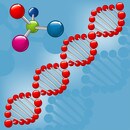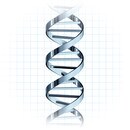News
Vitamin D may provide relief for patients with chronic hives
3 March 2014
According to a new US study increased intakes of vitamin D3 as an add-on therapy may significantly decrease the severity of symptoms in patients with chronic hives.
01 September 2011
Nutritional genomics is a science that studies the relationship between the human genome, nutrition and health. It can be divided into ‘nutrigenomics’, which investigates the effect of nutrients on health through altering gene expression, and ‘nutrigenetics’, analyzing genetic variations (polymor-phisms) among individuals with respect to the interaction between nutrients and disease. It is becoming increasingly evident that the risk for developing degenerative diseases increases with more DNA damage, which in turn is dependent on micronutrient status.
 The optimal concentration of micronutrients for prevention of genome damage is dependent on polymorphisms that can alter the function of genes involved directly or indirectly in the uptake and metabolism of micronutrients required for DNA repair and DNA replication. The development of dietary patterns that are designed to improve genome-health maintenance in individuals with specific genetic backgrounds may provide an important contribution to an optimum health strategy.
The optimal concentration of micronutrients for prevention of genome damage is dependent on polymorphisms that can alter the function of genes involved directly or indirectly in the uptake and metabolism of micronutrients required for DNA repair and DNA replication. The development of dietary patterns that are designed to improve genome-health maintenance in individuals with specific genetic backgrounds may provide an important contribution to an optimum health strategy.
 Nutritional requirements for genome health
Nutritional requirements for genome health
Genome damage impacts on all stages of life. That an elevated rate of chromosomal damage is a cause of cancer, accelerated aging and neurodegenerative diseases has been demonstrated by ongoing prospective cohort studies in European countries. Those individuals with accelerated aging syndromes as a result of redox imbalances and/or suboptimal DNA repair may be particularly susceptible to the genome-damaging effects of suboptimal micronutrient intake.
About 40 micronutrients are required in the human diet. There is overwhelming evidence that several micronutrients (vitamins and minerals) are required as cofactors for enzymes or as part of the structure of proteins involved in DNA synthesis and repair, prevention of oxidative damage to DNA and maintenance of genome stability (1, 2). Deficiencies in micronutrients can cause DNA damage and are associated with a number of serious human diseases. Genome damage caused by moderate micronutrient deficiency is of the same order of magnitude as the genome-damage levels caused by exposure to sizeable doses of environmental factors such as chemical carcinogens and UV radiation, about which there is already a heightened level of concern.
Results from a population study suggest that at least nine micronutrients affect genome stability (3). In the study, dietary intake and genome damage in lymphocytes were analyzed in 190 healthy individuals (mean age 47.8 years). The results showed that high intake of calcium, folate, nicotinic acid, vitamin E, vitamin A and beta-carotene was significantly associated with increased genome stability. On the other hand, high intake of pantothenic acid, biotin and riboflavin was associated with increased genome instability. The study illustrates the strong impact of a wide variety of micronutrients and their interactions on genome health depending on the level of intake.
The amounts of micronutrients that appear to be protective against genome damage vary greatly between foods. As dietary choices vary between individuals, because of taste preferences that may be genetically determined or because of cultural or religious constraints, several options are required and supplements may be needed to cover gaps in micronutrient requirements (4). Adjusting human metabolism through a diet which would be specific for individuals with similar genotypes and ages may minimize damage to chromosomal and mitochondrial DNA, optimizing health and prolonging the quality of life. Establishing optimal micronutrient intakes for minimizing human DNA damage should reduce the risk and onset of certain cancers, and other degenerative diseases associated with aging.
 Micronutrients and DNA stability
Micronutrients and DNA stability
The term nutrigenomics refers to the effect of diet on DNA stability and gene expression. There is evidence that inappropriate nutrient supply can cause sizeable levels of genome mutation and alter expression of genes required for genome maintenance. Deficiencies in several micronutrients have been shown to cause DNA damage and are thought to be associated with a number of serious human diseases: folic acid, niacin, vitamin B6 and B12 deficiency may increase the risk of colon cancer, heart disease and neurological dysfunction due to chromosome breaks and disabled DNA repair. Vitamin C deficiency may increase cataract and cancer risk due to DNA oxidation. Insufficient vitamin E levels may increase the risk of colon cancer, heart disease and immune dysfunction via DNA oxidation. Zinc deficiency has been shown to cause memory loss because of chromosome breaks (5).
Telomeres are nucleoprotein structures that cap the ends of chromosomes, maintain chromosome stability and prevent end-to-end fusion of chromosomes during cell division. Degradation of telomeres has been shown to lead to whole chromosomal instability, an important risk factor for cancer (6, 7). Telomere shortening has also been proposed as one of the fundamental mechanisms that determine the rate of aging in cells (8, 9). Studies indicate that folate and nicotinic acid deficiencies together with increased oxidative stress may accelerate telomere dysfunction. Such metabolic imbalances may possibly explain the observed associations between telomere shortening and a number of conditions including obesity, psychological stress, immune dysfunction, cancer and cardiovascular disease (10-15).
Under folate-deficient conditions the base uracil is incorporated into DNA instead of thymidine, leading to chromosome breakage. In addition, folate and vitamin B12 play a critical role in maintenance of DNA methylation which, apart from its importance for transcriptional control of gene expression, determines the structural stability of important regions of the chromosomes. There is strong evidence that defects in the DNA methylation process can cause excessive telomere dysfunctions (16). It is therefore possible that deficiency of folate and other methyl donors may also result in telomere instability by causing inadequate maintenance of methylation. Nicotinic acid (niacin) is another dietary micronutrient that is known to play a fundamental role in chromosome integrity and reduction of cancer risk (17, 18).
Damage to DNA, lipids and proteins induced by reactive oxygen species may be controlled by antioxidants (such as vitamins C and E) as well as enzymic mechanisms such as superoxide dismutase and catalase (19). Under certain conditions, such as increased levels of free radicals and/or reduced levels of antioxidants, an imbalance can occur and the capacity for prevention and repair can become overwhelmed. In in-vitro studies antioxidant treatment has been found to prevent telomere attrition and to increase cellular lifespan (20); however, whether similar effects can be achieved in vivo remains uncertain.
 Micronutrients and polymorphisms
Micronutrients and polymorphisms
Some cases of micronutrient deficiencies are due to poor diet while others are due to variant genes not being able to process the nutrients correctly. Approximately 50 human genetic diseases can be attributed to these so-called “enzyme polymorphisms”. Such common genetic variations may alter the activity of genes that affect the bioavailability of micronutrients and/or the affinity for micronutrient cofactors in key enzymes involved, for example, in DNA metabolism or repair. Supplementation of the diet with appropriate vitamins and minerals could, in some cases, help overcome inherited metabolic blocks in key DNA maintenance pathways, potentially decreasing cancer risk (21).
Increasing the concentration of a cofactor by supplementation is expected to be particularly effective when a mutation (polymorphism) in a gene decreases the binding affinity for its cofactor resulting in a lower reaction rate. The term nutrigenetics refers to the impact of genetic differences between individuals on their response to a specific dietary pattern for a specific health outcome.
Studies on the common mutations in the methylenetetrahydrofolate reductase (MTHFR) gene have shown that they have a modulating affect on the risk of developmental defects and cancer (22). There are important significant interactions between a specific MTHFR polymorphism (C677T), its cofactor riboflavin and folic acid in relation to chromosomal instability: high riboflavin concentration increases instability under low folic acid conditions (23). Studies on the interactive effects of folic acid deficiency and inherited mutations in the MTHFR gene indicate that moderate deficiency in folic acid has a strong impact on genome instability.
In addition to cancer, a number of genetic variations have been shown to increase the susceptibility to micronutrient-related diseases, such as type 2 diabetes mellitus, obesity, cardiovascular diseases and some autoimmune diseases. The vitamin D3 receptor (VDR) gene, for example, encodes the nuclear hormone receptor for vitamin D3. It belongs to the family of transcriptional regulatory factors. Targets of this receptor are principally involved in mineral metabolism though the receptor regulates a variety of other metabolic pathways, such as those involved in the immune response and cancer. Polymorphism of the VDR gene has been linked to bone mineral density, and also multiple chronic diseases such as cancer – mainly breast cancer (24), prostate cancer and malignant melanoma (25) – type 2 diabetes mellitus (26), Parkinson’s disease (27), lung diseases (28), gastrointestinal disease (29), multiple sclerosis (30, 31) and periodontal disease (32).
 Outlook
Outlook
It is evident that micronutrients play an important role in genome maintenance. Given that damage to the genome is the most critical event that can lead to dysfunction, it is essential that more attention is given to the nutritional requirements for genome-health maintenance. Development of dietary patterns, functional foods and supplements that are designed to improve genome-health maintenance in humans with specific genetic backgrounds may provide an important contribution to a new cost-effective health strategy based on the diagnosis and individualized nutritional prevention of genome instability (e.g., chromosomal and telomere aberrations) and degenerative diseases (4).
Although it is not yet possible to make distinct dietary recommendations for prevention of DNA damage based solely on an individual’s genetic background, it is feasible to use current diagnostics to determine whether dietary pattern or supplement recommendations actually cause benefit or harm to the genome of an individual.
3 March 2014
According to a new US study increased intakes of vitamin D3 as an add-on therapy may significantly decrease the severity of symptoms in patients with chronic hives.
20 September 2013
New research from Norway reports that supplements containing vitamin D3 can increase blood concentrations more effectively than the D2 form.
16 July 2012
According to a new US study, dietary guidelines urging people to decrease their sodium intake and simultaneously increase their potassium intake are currently only met by very few of the adult population.